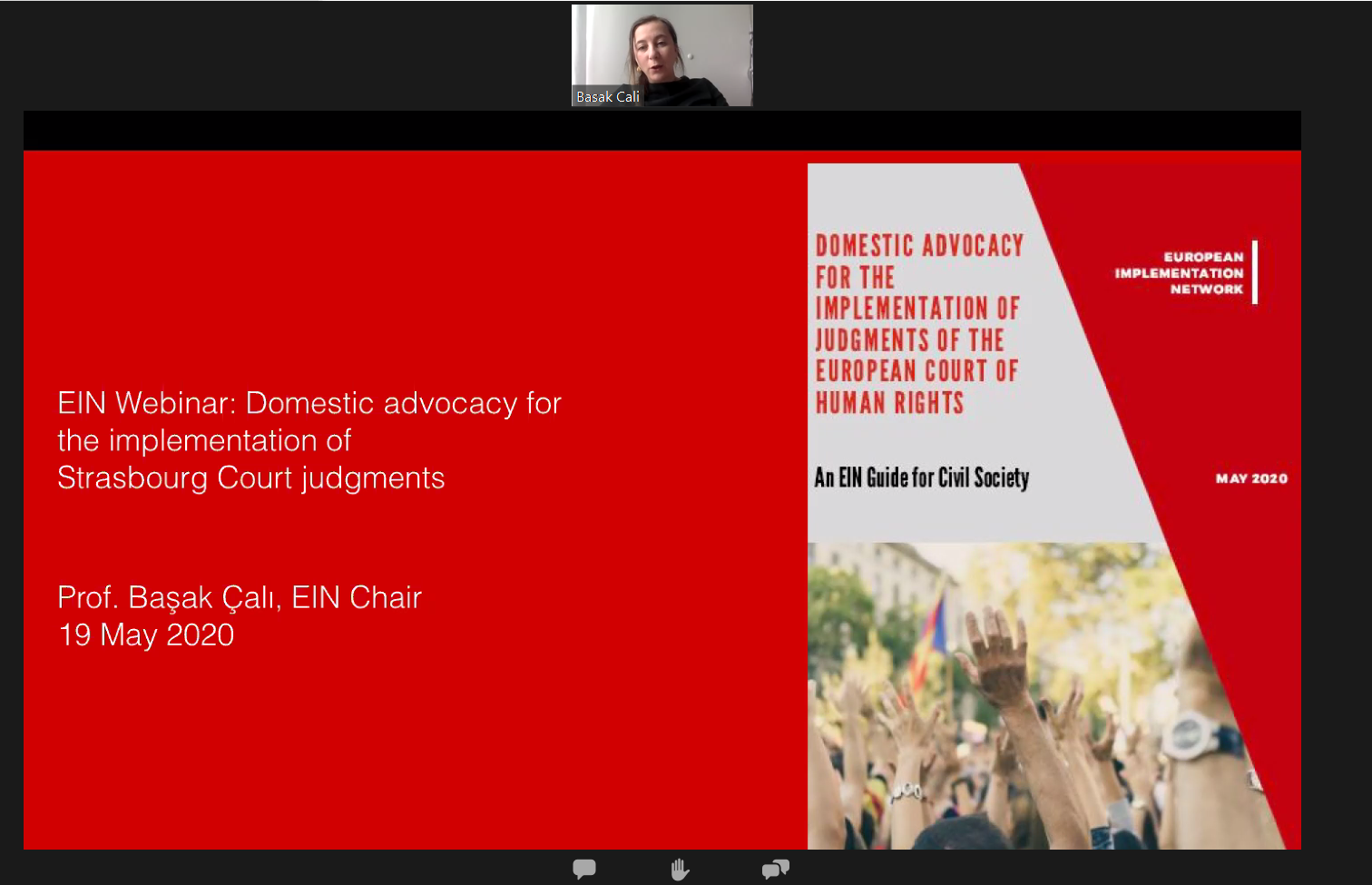New EIN toolkit on domestic advocacy for the implementation of Strasbourg Court judgments
/The European Court of Human Rights continues to act as a ‘beacon of hope’ for victims of human rights violations denied justice at the national level. But unless judgments are properly implemented, a case won in Strasbourg does not translate into sustained human rights gains.
Civil society plays a crucial role in driving implementation forward, both in Strasbourg and domestically. While levels of civil society engagement at the Council of Europe level have been on the rise, more civil society engagement is needed on the ground, at the national level, to promote the full and effective implementation of human rights judgments.
But how best to push domestically for the implementation of judgments? Over the course of the past year, EIN has tapped into the collective knowledge and experience of its members and partners from across Europe, and collected good practice examples of how domestic civil society actors effectively engage with the authorities, form advocacy alliances, and use the media to promote implementation in their countries.
This has culminated in a new EIN Guide for civil society on domestic advocacy for the implementation of Strasbourg Court judgments. This latest EIN resource was launched on Tuesday, 19 May, at a webinar attended by some 150 participants.
Discover the video of the webinar on our YouTube channel.
The examples compiled in this guide show that, where NGOs have sought, identified and pursued opportunities for engaging with the authorities, where they have formed alliances with other civil society actors and used the media to drive implementation forward, they have managed to secure important human rights gains.
We hope that civil society actors in Europe will draw inspiration from the best practices and lessons learned presented in this toolkit. Because the conditions for effective implementation vary from country to country, from time to time and even from case to case, this guide does not provide a blueprint, one-size-fits-all approach to domestic advocacy for judgment implementation. Instead, it is conceived as a ‘menu’ of potential strategies, tools and actions that NGOs could take at the national level to push for the execution of judgments. The readers are encouraged to pick and choose those elements of this guide that are most relevant to them.
This guide is also a ‘living document’. It seeks to spark a wider conversation among civil society about how to use advocacy at the domestic level to push for the implementation of judgments. We therefore warmly invite our readers to send us feedback, and share their own experiences with domestic advocacy for the implementation of Strasbourg Court judgments with us. So please get in touch!




